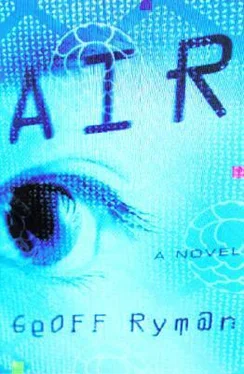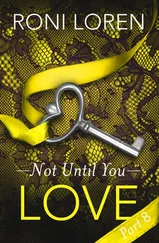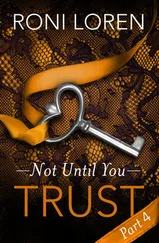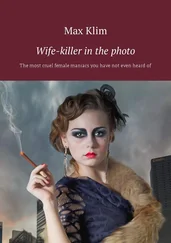Why was she crying? 'Fire becomes love. In Air.'
He stood beside her and she was not sure what he felt.
'You see? You see? You see?' Even to herself, Kwan sounded like a bird.
In March the road was finished, and in one of the first cars up, it carried Fatimah from Yeshiboz Sistemlar.
Fatimah asked where Mae was. Sunni and Kwan greeted her with firm smiles.
'Mae is gone away,' said Kwan.
Fatimah looked suspicious and disappointed. Kwan had been her ally.
'Where? May I see her?'
'Oh, I think not,' said Sunni.
'No,' said Kwan, shaking her head. 'No. She went up into the hills, to live with an old aunt. She takes care of her now.'
'Yes,' said Sunni. 'How lucky is the woman who has family. We did not even know the aunt existed.'
'Where is the village?' Fatimah nodded, vaguely uphill.
'There is no road,' said Kwan.
Fatimah stood just outside the interior of the car, the door open between her and the villagers. Above her, the ruin of terraces was a jumble of stones.
'I feel it is only polite to point out,' said Sunni, 'that for you, there will never be a road.'
Fatimah's face went pale, and worked in helplessness. She got back into the car.
The Circle's weaving machine was replaced by insurance money. There was a celebration when it arrived. The Nouvelles Chung Mae Fund had ordered over four thousand collars, enough to keep even the machine busy. Each Disaster Collar had in honor of chung mae woven into it. Inside the package, in English, was the recipe for a thank-you cake. The huge sums of money from the sale were distributed to those outside the Circle as well as those within.
The men repaired some of the terraces, only a few, enough to plant some rice, enough to feed the village and generate some more grain.
A hired bulldozer came and scooped up the last of the ruins of the Chu, Koi, and Han households. Rugs, cups, clothing, came to the surface, but not the missing bodies.
Finally, halfway down the plain, they found a body which must have been Han Kai-hui. Sezen, Kwan decided, had been carried by the Flood even farther into the future than Mae. She would never be found, except perhaps in a spaceship going to the moon.
High on the hill where their mosque had been, the villagers gathered for another funeral.
And Chung Mae was brought out for it.
Chung Siao came with her, holding her hand, keeping her quiet. And on her other side stood Mr Ken.
'Who is it? Who is it?' Mae demanded, too loudly.
'Han Kai-hui, Granny,' Mr Ken said to her. 'You remember her. She was Chung Mae's little childhood friend.'
Mae's face looked angry. 'She must have died very suddenly! Was it an accident?'
Pause. 'Yes, Granny,' said Ken.
Mr Ken struggled to keep the fighting hands still. His face looked worn but enduring. How can he stand it? Kwan wondered.
'Oh! People should be more careful!' Mae flung the news away with a toss of her head. Old Mrs Tung could not learn. She looked around the crowd, outraged, like an angry lizard. 'And children should show respect! Where is Han An, at her own mother's funeral? Where is Chung Mae, if it is her friend? Mae should be here!'
This was beginning to look like a mistake. Kwan moved through the village crowd. They stood in their anoraks or sheepskins, all heads bundled in scarves. The fire was mostly broken furniture and kerosene, with a rug wrapped around the body.
Maybe Kuei can bear it for the sake of his child inside her.
Maybe he can bear it because he shares it with Siao. It is strange, the two of them and her. Who can say how they make it work?
Except through love. Fire in Air.
Kwan nodded to them both, eyes catching. Then she looked deep inside the eyes of the woman beside them who was no longer Chung Mae.
Kwan denounced her. 'You horrible old woman. You are dead, too. You died, you horrible ghost. We loved you in life, but you should be a spirit now, in the air. You are a disease. At least let Mae mourn her friend.'
The eyes went confused and watery, the young mouth shook like an old one. For just a moment, Kwan thought she saw Mae.
'Mae. We're winning. Everyone uses the TV. We love it. Mae, we want you back.'
'Uh!' said the struggling Mrs Tung, and pushed Kwan away from her.
Kwan saw struggle in the helpless confusion of the face, the shuddering and the shaking.
'She's fighting, she's there,' said Kwan. She took hold of the hand and kept talking to her. 'Come on, Mae. You can come back. The old witch only has part of your soul. You have the rest. Come back, Mae!'
Kwan visited Mae most days.
Siao and Ken Kuei lived together with Mae in the ruin of their houses. The village had decided not to regard this as a scandal. Both men loved her; of course they would stay with her in misfortune.
Only the barn and the back corner of the house still stood. The wound had a scar of piled stones over it, bandaged with plastic. Daylight peeked through, but the room was warm. There was room for the brazier and the table, and the alcove with the bed. Part of the loft remained, but was unused.
Kwan would duck through the low doorway and bow with respect to Old Mr Chung, who sat in the only standing corner of his old house. Kwan would lay food on the table – village bread, a few dried vegetables, and at times even a bottle of rice wine saved from the Flood.
Siao and Mr Ken would both then busy themselves with the cooking. Politely, they would pass each other the knife, the soy. Kwan had once asked Ken Kuei how it was, all three of them living together. 'Oh,' he said. 'There is no problem. I have lived next to Chung Siao all my life. We have always been friends.'
Kwan felt a quiet pride. Such behaviour is only possible, she thought, among a truly civilized people.
It was best for Mae to sleep in her own bed. It might help to bring her back. Certainly Old Mrs Tung did not like it. The old creature quailed, Why are we in this place? She was confronted with the fact that she did not belong.
The tiny bedroom alcove was kept as tidy as possible by Mr Ken. Old Mrs Tung would sit disgruntled next to the tiny window. She kept turning out the electric lights; she hated them. She lit candles. Mr Ken put them out. Candles in such a crowded space were dangerous.
'Hello, Siao,' said Kwan. 'Is she eating?'
He shook his head no: No, she is not. 'She says her tummy burns.'
Her stomach ballooned out just under the rib cage like a pigeon breast. You could tell just from looking at her shape that something was terribly wrong. Old Mrs Tung could learn nothing new, so she could not remember that she was pregnant or where the pregnancy was. She felt full so she never ate. Mae's starving face was becoming more and more delicate. Mae was beginning to look like Mrs Tung.
Kwan said, 'Mae's not fighting.'
Perhaps there is no more Mae left to fight.
'I found the onion in my old store. And Mrs Ozdemir, bless her, she still keeps giving me bits of her goat for Mae.'
It was smoked scrag-end. Siao went for the cleavers. 'The famous cleavers,' he said. He added the onion and curry powder to cover the taste of stale meat. They sat and talked of village things. The two men took turns to stir the fry up.
Kwan looked at Mae's beautiful old dresses hung in an orderly row. 'It's been a long year,' she said.
'Huh. More like a century,' said Kuei.
'Remember, last April? She was already beginning to talk to people about graduation dresses, showing them fabric, bustling about the place. She always wore high heels for that, remember?'
'Oh! Do I!' Kuei rolled his eyes, as if he had never seen anything as beautiful. 'With her hair always up. I would look out, and it was like a dream to see her, like someone from TV had dropped down by mistake into our village.'
Читать дальше












